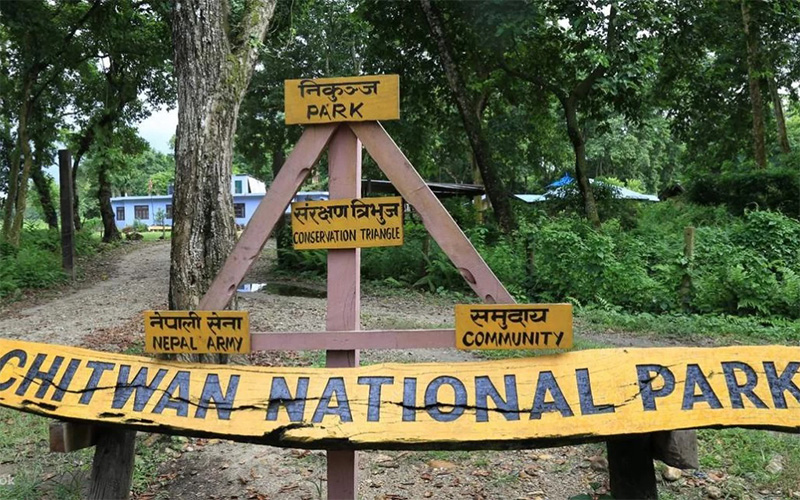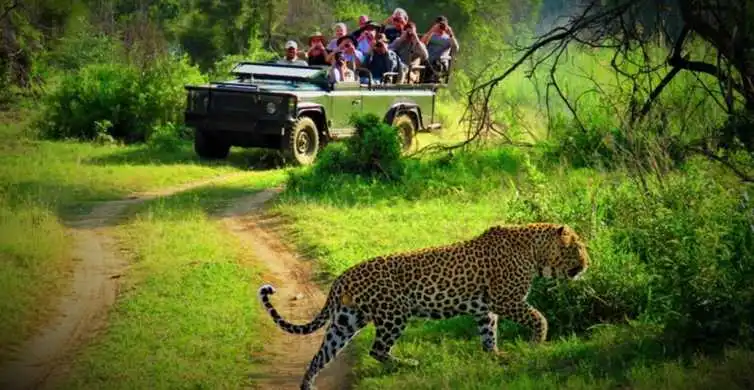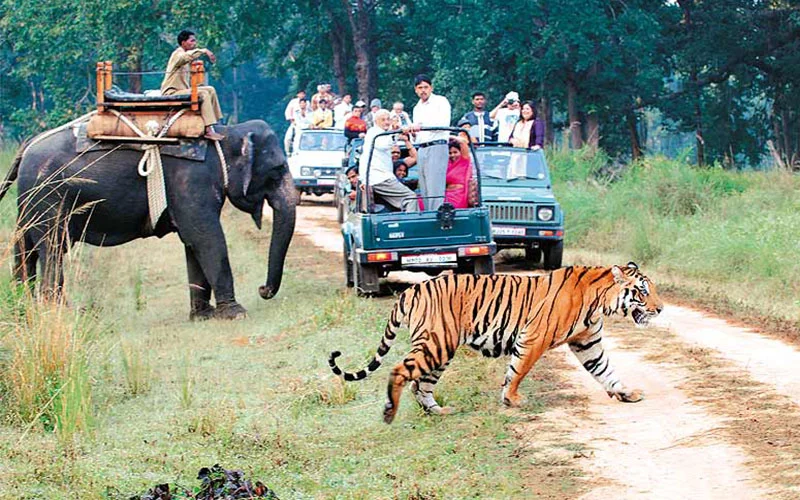Chitwan Jungle Safari Package –1 Night/2 Days with Tour of Nepal

Embark on a thrilling 2-day journey into the heart of Nepal’s Chitwan National Park, a UNESCO World Heritage Site. Explore the rich biodiversity, learn about conservation efforts, and engage with the indigenous Tharu culture.

Highlights
– Spot rare wildlife like the one-horned rhinoceros, Bengal tiger, and over 500 bird species.
– Enjoy an adventurous jeep or elephant safari through dense forests and grasslands.
– Visit the Elephant Breeding Center and learn about conservation programs.
– Experience Tharu culture with traditional dance, music, and crafts.
– Birdwatch in a paradise with species like the Bengal Florican and blue-bearded bee-eater.
Itinerary
Day 1

– Depart from Kathmandu and arrive in Chitwan.
– Orientation and briefing.
– Visit the Tharu Cultural Museum and enjoy a traditional Tharu dance.
– Stay overnight at a safari lodge.
Day 2
– Early morning jungle safari (jeep or elephant).
– Visit the Elephant Breeding Center.
– Return to Kathmandu.
Inclusions
– Accommodation at a safari lodge (1 night).
– Meals: Breakfast, lunch, and dinner.
– Guided jungle activities.
– Transportation from and to Kathmandu.
– Park entry and conservation fees.
Essential Info
– Duration: 1 night/2 days.
– Difficulty Level: Easy.
– Group Size: 2+ (Private and group options available).
– Best Season: September to June.
– Max Altitude: 200m.
Good to Know
– Weather: Best to visit during spring (March-May) or autumn (September-November).
– Conservation Impact: Your visit contributes to the park’s conservation efforts.
Client Reviews
“A fantastic short escape into nature. The guides were knowledgeable, and the wildlife sightings were unforgettable.” – A Traveler
Why Choose This Safari?
– Adventure: Unique jeep/elephant safaris and canoe rides.
– Cultural Immersion: Learn about the Tharu people and their sustainable way of life.
– Biodiversity: Witness one of the most ecologically diverse parks in the world.
– Conservation Support: Your visit aids in protecting endangered species.
Chitwan National Park
Spanning 952.63 sq. km, the park was established in 1973 and boasts lush habitats, rare wildlife, and cultural richness. A visit promises unforgettable memories and a deeper appreciation for Nepal’s natural and cultural heritage.